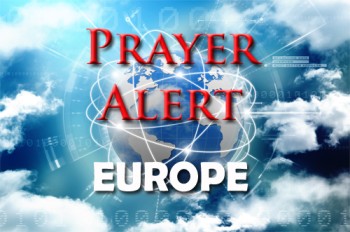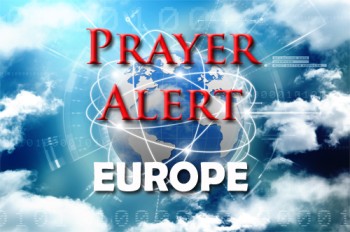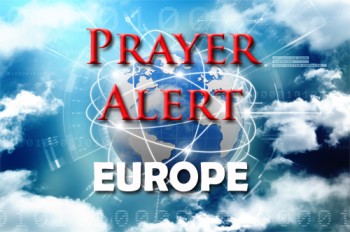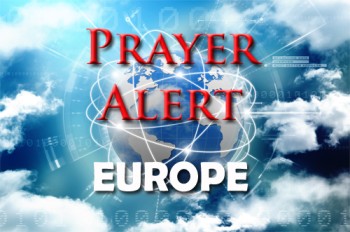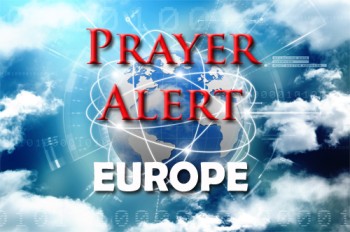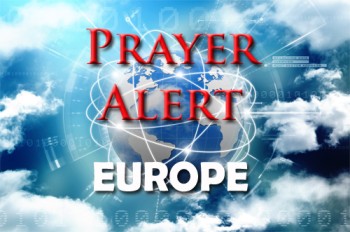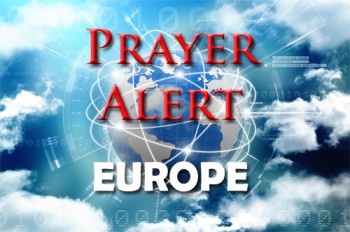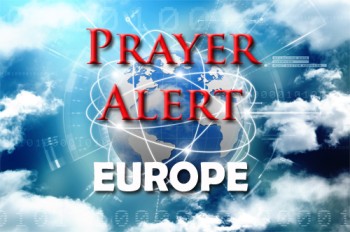Displaying items by tag: Europe
‘We had this peace with God’
When the Russians seized Berdyansk, four days into the war, Anya and her eleven foster-children were forced to stay in a bunker below their house for 42 days. ‘It was hard and dangerous, but every day we woke up and thanked God that we were still alive and still able to worship Him’. Anya said. They were rescued by Orphan's Promise. It was scary to leave. At the last checkpoint they were on a bus that came under fire when the Russians began firing on Ukrainian troops. Everyone on the bus fell to the floor, the children cried and shouted, but they all miraculously survived. Now the Russians have closed Berdyansk, not allowing anyone out or humanitarian aid in. The family expect to get visas for Switzerland to wait out the war.
Hungary puts own interests first
As countries around the world take sides in Russia's war against Ukraine, Hungary is the only country in the region refusing to help Ukraine fight Russia. That means no military aid or weapons shipments across its borders despite personal pleas from President Zelenskyy. Hungary said, ‘This is not our war, so we want to and will stay out of it.’ Viktor Orban, Hungary’s president, is widely seen as Putin's European ally. He has sought neutrality in the war despite Hungary’s membership of NATO and the EU. He is threading a middle road between friendliness with Russia and belonging to these organisations because Russia supplies 90% of Hungary's raw energy needs. So he has blocked the EU from imposing sanctions on Russian energy imports - Europe's weapon to put pressure on Putin. ‘Cheap Russian oil is more important for Hungarian politicians than Ukrainian blood’, said the Czech Republic's defence minister.
'Unimaginable conditions' in Mariupol
Olena and Oleksandr tried to escape Mariupol, but ended up in a Russian refugee hub (more like a concentration camp) where they were interrogated. ‘You can't imagine how horrible the conditions were there. Elderly people slept in corridors without mattresses or blankets. There was only one toilet and one sink for thousands of people. Dysentery soon began to spread. There was no way to wash or clean. It smelt extremely awful. Soap and disinfectant ran out on the second day we were there. Soon toilet paper and sanitary pads ran out. We were fingerprinted, photographed, interrogated for hours, and had phone call history and contact numbers on devices checked for links with journalists or government and military officials.’ They said If someone appeared to be a 'Ukrainian Nazi', they were sent to Donetsk for further ‘interrogation’ (torture). When authorities tried to deport them to Russia, they risked escaping with private drivers to Ukraine.
'Foretaste of heaven'
In Creteil, a communist, socialist, and conservative suburb of Paris, a song of reconciliation and unity is rising - and a message that is attracting people from diverse backgrounds. ‘I don't have to build a church; I have to build a place where people will be loved. Not trying to make them look like me, just love them, introduce them to God, and they will be changed by the Holy Spirit’, says French pastor Ivan Carluer, founder of Martin Luther King Church. He drew his inspiration from the civil rights leader's message of unconditional love. Carluer also had a dream to create a space where blacks, whites, and people of other racial backgrounds could come together and reflect the diversity of Paris. Carluer's dream is now a reality. ``We have 20% all black, 10% all white, 10% Asian, and 60% cannot be defined,’ he laughs. ‘Jesus' colour!’ MLK is now one of the country's largest evangelical churches, and Ivan is a rising figure in France's Protestant movement.
Ukraine: ‘I'm shocked by my church leaders in Moscow'
The Russian Orthodox Church is echoing Putin to justify the war. Its stance is driving many Ukrainian priests and parishioners to reject its teaching and join the Ukrainian Orthodox Church. Father Nicolay Pluzhnik said, ‘When the war started, I waited to hear from Patriarch Kirill of Moscow, the “father” of our church.’ There was no reaction, and then Patriarch Kirill and most of Moscow’s priests gave blessings to the war. They failed to condemn killing innocent Ukrainians or call for a ceasefire. Instead, they held large, televised services in Moscow to bless Russian troops, with sermons proposing the Kremlin's war is a righteous war about the future of Christianity. Patriarch Kirill said, ‘What is happening today is much more important than politics. It’s about human salvation.’ Dr Rowan Williams said, ‘There are elements in the Russian Christian tradition that become toxic when they follow Christian nationalism. It’s a messianic approach to Russia’s fate.’
Ukraine: battle for control of the skies
Much of the focus of the war in Ukraine has been about the battle on the ground - but the fight to dominate the skies is just as important. The BBC has interviewed a Ukrainian air defence officer about the battle for control of the skies. Captain Vasyl Kravchuk has a surprisingly ready smile for a man who has endured fifty days of war. They spoke to him via video link from his base at an undisclosed location. He knows the coming weeks will offer no respite. Russia may have received a bloody nose in its aborted attempts to take Kyiv, but with the Eastern region of the Donbas now firmly in Moscow's sights, the men and women of Dnipro's anti-aircraft missile brigade will continue to play a key role in the next phase of the war. Capt Kravchuk said, ‘Past wars have shown that whoever dominates the air wins the war’.
Germany: Gang plans civil war conditions
German police have detained four people accused of plotting to create ‘civil war conditions’ and eventually overthrow democracy. United Patriots are part of Citizens of the Reich. They reject the German state as illegal. They intended attacking substations and power lines to destroy Germany’s energy infrastructure and cause long-lasting nationwide power failures. A number of high-profile people were also targeted as potential kidnap victims. One of the targets said, ‘There are forces that intended to destabilise the state and democracy. They are a small minority but are highly dangerous.’ The movement has an estimated 19,000 members who also spread racism and misinformation. (See) They were arrested on April 13 police also seized numerous guns including Kalashnikov, gold bars and cash in euros and foreign currency totalling £16,600. They went before a judge on April 14. A fifth suspect remains at large. Investigators have identified 12 people also connected to the group, which used the Telegram messaging app to communicate.
Europe: Human trafficking – Red Alert
According to the UN definition, Human Trafficking means; ‘The recruitment, transportation, transfer, harbouring or receipt of persons for the purpose of exploitation.’ The victims are coerced into dependence by debt bondage, violence, and/or drugs. They become ‘exploited’ and deprived of their rights, freedom of speech, independence, and self-respect. Any age, class, religion, nationality, gender, or colour can be a trafficking victim. Pray for the Red Alert Task Force, as it recruits members from many European countries to partnerships with organisations that can make a difference for victims of trafficking/slavery. Pray that the doctors and other health care professionals who encounter victims to recognise the signs of trafficking and be trained to help them. Pray for the victims to be freed from their slavery and find the physical, emotional and spiritual freedom that they need.
Finland: I Am Dismayed
Last week we celebrated the Finnish district court clearing an MP and her Pastor of all hate speech charges over their beliefs on sexuality, declaring that ‘it is not for the district court to interpret biblical concepts’. (See) Then on the 11th April the media reports that the prosecutors will reportedly appeal that verdict.
Hungary: Viktor Orban criticises Ukraine's Zelensky
Prime Minister Viktor Orban won his fourth term in Hungary’s general election. In his victory speech, Orban said, ‘We never had so many opponents, Brussels bureaucrats, the international mainstream media, and the Ukrainian president.’ He has close ties with Moscow and has banned transferring arms to Ukraine. Victory for Orban means a headache for the EU. In 12 years of tenure, he has rewritten the constitution, filled the top courts with his appointees, and changed the electoral system to his advantage. During campaigning, the opposition's catchphrase was ‘Orban or Europe’ complaining he had isolated Hungary from the European mainstream, from consensual democracy, fairness and decency. Hungary is isolated in the EU and NATO - but neither institution will ostracise him. They want to show Russia Western unity so he will remain an unpredictable thorn in their side. Orban said Hungary would pay Russia in rubles for gas – other European countries have ruled it out.

